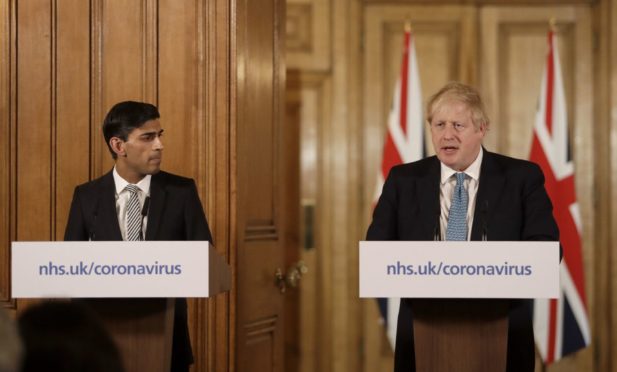A relative is in poor health. She suffers from a condition acquired before the virus. After a hospital stay, she is looked after at home. Her bed is in the front room, a strange echo of those childhood games when you’d make a den.
There is no fun to this.
Her carers are state provided, but employed by an outsourcing company. If they don’t work, they don’t get paid. They have no pension policy and no sick pay. There is no redundancy programme either.
The government advice is that my relative should self-isolate. That’s is an astonishingly hard thing to achieve, and also potentially miserable.
If the carers followed the advice, then they would not only let her down, but also find themselves unemployed. It’s a no-win situation.
The welfare state was made after a terrible war where people wanted something better. Boris Johnson said this week that his was a “wartime government”. The enemy is the virus.
It’s not clear Boris understands just how much we will come to rely on the welfare state, or is ready to accept a new model coming out of this war.
My relative, before she became ill, was round for a meal on Boxing Day. Without prompt, she happened to say what a wonderful life she’d had.
She’d been the first of her family to go to university, and eagerly absorbed the advantages of a newly improved society. For her, the welfare state is dear.
For the carers, and countless numbers of others in the gig economy, modern life is not so kind. The protections put in place in labour law and state provision have been undermined and diminished.
As the virus closes down the economy, these workers have limited options. They’ll need to claim unemployed benefit and rent support. Both take weeks to come through.
Current laws on what counts as a unemployed when you are freelance might delay it further. Our damaged welfare may struggle to cope with the demand.
In the broader sense, things don’t look too good either. Pledging more than £300 billion in aid from the government is welcome, but it is aimed at businesses.
There will be grants, tax holidays and other assistance. It is important to keep business afloat, and for the economic chain from retailer to suppliers to landlord to accountant to not be broken, but it’s not clear how that helps unprotected workers.
Thousands in the caring, leisure and entertainment sectors, and across the economy, have a direct problem – the virus has shut down their income: They need money now.
It seems improbable that an outsourcing company already in receipt of lots of public cash will change its policies to be more favourable to the workers. Outsourcers make their profits by squeezing the low paid.
If a public grant goes to the outsourcing company, how does that benefit zero-hours staff?
At the moment, that’s not how the government bailout works. It protects economic entities, but not individual workers.
At my local, the staff diligently washed every bottle and counter and wore latex gloves just as Boris Johnson was announcing people should avoid bars. One wag said they should rename the place the Soap Bar.
These people need to eat today; they will have rent coming up.
BoJo’s belated £300bn is vast, but it’s absolutely uncertain how aid for business benefits the probably-unemployed beer puller.
Politicians are aware of the problem. Conservative, Labour and SNP people have all nodded to it. The fear is that they are not sure how to tackle it.
Shadow Chancellor John McDonnell has made some sensible points about how to protect the individual. He suggests a statutory sick pay for everyone, regardless of existing employment rules.
He adds that people who rent homes should be given protection and utility bills should be frozen. Universal Credit currently offers people loans for their welfare. McDonnell suggests these should become grants.
We built the welfare state on one ideology, and then picked at it for 70 years, under another. The virus might show that how the state protects the citizens is beyond doctrinal ideas.
Corrupted employment rules and a weakened NHS are simply not sensible ways to progress. As we can see, these are matters of national security, not social policy to be kicked about at every election.
The primary function of government is to protect its citizens from the vagaries of modern life, not just war, as was once thought. Climate change, economic shock, contagions, inequality. These are the modern enemies.
They should become the pillars of a new Beveridge Report, a new kind of welfare, where the individual is equal to the economic enterprise, where public bailouts are for the public.
As of today, we are all finding our way through this new world. It is disappointing that politicians and governments have been slow to act. But the priority now is to do radical things which help individuals immediately.
That means putting cash in the pocket of those left behind by the damage we did to the great legacy of the last war, the welfare state.
